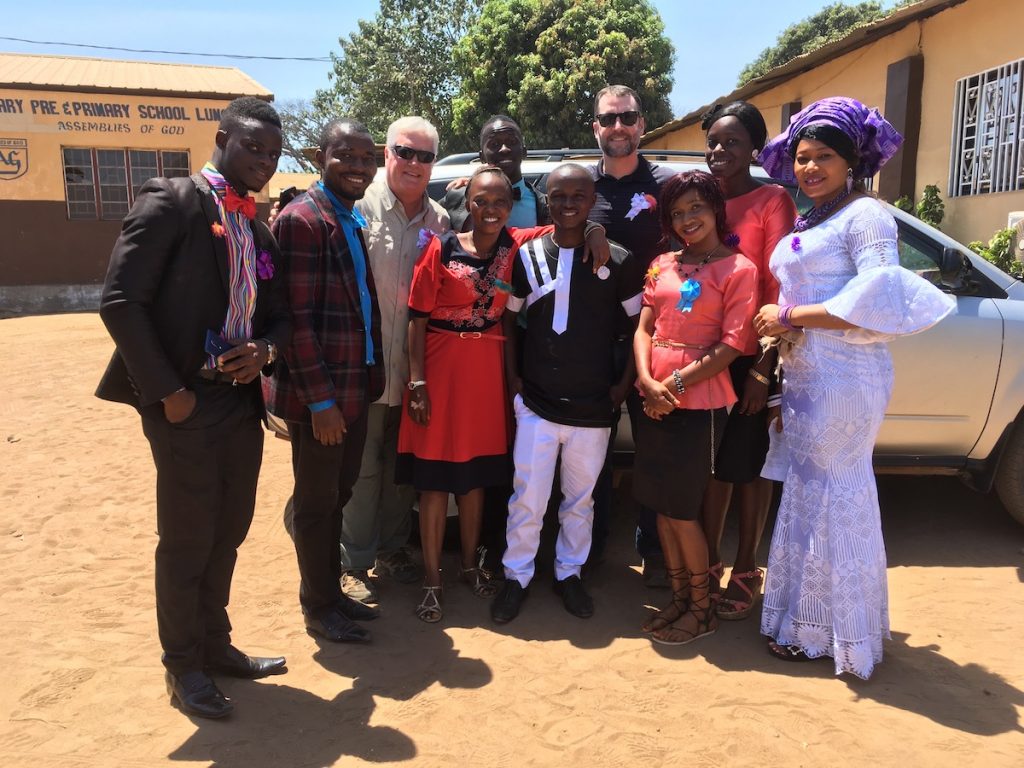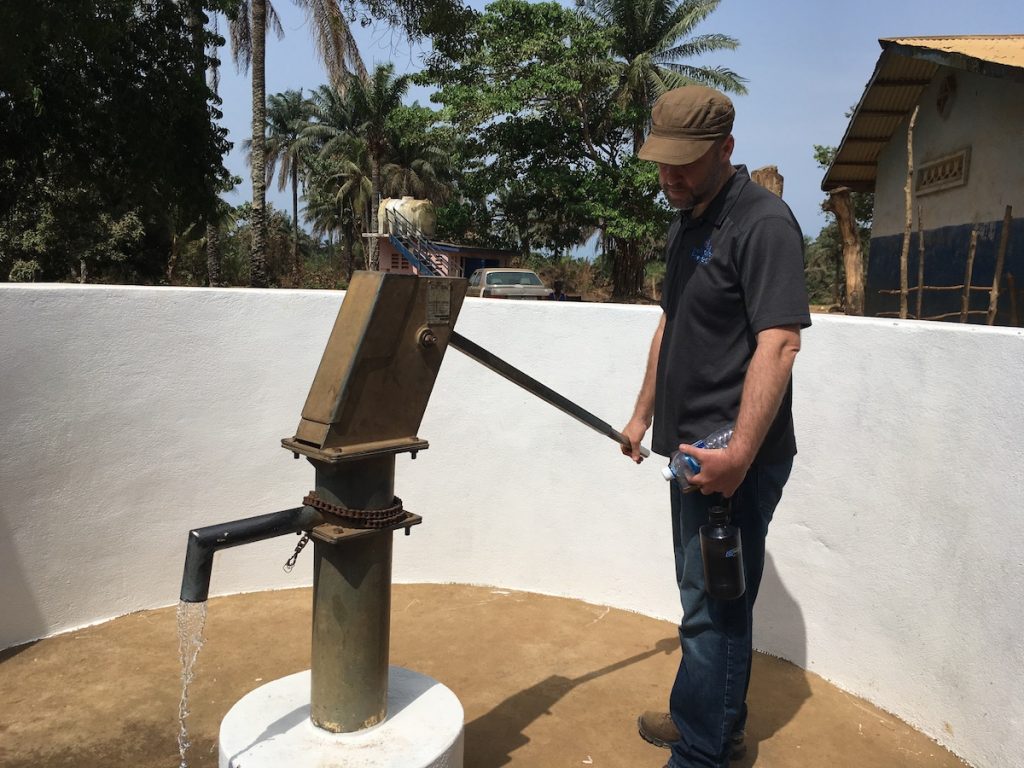Notes from Spencer, Director of Program
In February I was able to make my first journey as Director of Program with The Water Project to visit our projects in Lungi and Lokomasama, Sierra Leone. I had the good fortune of traveling with Michael Ballou, our resident engineer and operations manager on staff at The Water Project. We flew into Lungi Town, located to the North of Tagrin Bay, which flows between quaint and quiet Lungi and the large and sprawling capital of Freetown to the south. The area is marked by rows of Palm trees- vestiges of an oil industry now abandoned, and by numerous fruit and nut trees that continue to flourish in the area. The thick crown of prolific mango trees serve as a ubiquitous seasonal candy-shop. Cashew trees are not as common, but provide a two-for-one fruit and nut combination within some of the communities. Cotton trees stand as sentinels above the tops of the mangos and palms with roots that resemble flying buttresses and thick branches that stretch toward the sun. Walk down a dirt ribbon road and discover breadfruit trees and guava. A humid coastal heat blankets the day of a dry season leading into a hotter and drier March.

Spencer with our partners in Sierra Leone
The people radiate a strength and resilience of those who have endured some of the most difficult trials that life has to offer- natural disasters, Ebola outbreaks, cholera epidemics, civil wars, and post-colonial political challenges. Whether purchasing bread or negotiating passage through a road under construction we were often greeted with a slight smile and the words “my friend.” Our implementing partner organization, Mariatu’s Hope is working with communities to install or rehabilitate thirty-five water, sanitation, and hygiene projects this year and they are currently monitoring 124 water points which they have previously implemented.
Michael and I went with the intention of learning as much as possible about our shared work from the perspective that they see daily in the field. Our days started with a team meeting that included a devotional, prayer, and detailed planning review to ensure that all schedules and responsibilities were clearly allocated. During the days the staff at Mariatu’s Hope provided us with a guided tour of projects in every stage of implementation, from creative teaching methods in sanitation and hygiene, to the drilling a new well, to tested innovative methods for rehabilitating a well that goes dry seasonally, to routine monitoring and evaluation visits. Robert, the director of Mariatu’s Hope, handed over the controls to the mud drill so that Michael and I could take part in drilling one of The Water Project wells with his team in Kolia village. Upon arrival we were met by the community who had gathered to participate in the hygiene and sanitation training, to contribute labor and resources to the implementation of the project, and to watch in anticipation of clean water access from a central point in the community marked previously only by dirt and dust. Not long after our return, we heard the good news that both the water quality and yield of this newly drilled well met the high standards of our organizational partnership.

Spencer checking out a pump
In order to reach another site scheduled for a well rehabilitation in Lokomasama we took a circuitous route because there was only one remaining bridge that provided access across the river. The platform of this last standing bridge had eroded and what remained was a series of planks about two tire-widths wide lined up over the iron skeleton. Between and beside the planks one could look down through the beams of the bridge to see the water rushing about twenty feet below. When we reached the bridge we waited in line as pedestrians slowly walked on the planks and motorcyclists walked their bikes along a solid iron line. This commitment to reach communities cut off by infrastructure problems is what our implementing partner has been doing day-in and day-out in Sierra Leone for years. Whether facing issues of dilapidated roads, bridges, unreliable internet access, or inconsistent electricity, Mariatu’s Hope leadership and staff continue to seek solutions and find a way to get the job done.
Perhaps the highlight of our trip was a celebration meal that we shared with the staff. In 2017 this sedulous team achieved 100% functionality of every water point we are monitoring. This is an absolutely incredible accomplishment for an organization that works exclusively with water pumps that break down regularly without diligent care, maintenance, and repair. We ate groundnut soup and fish and chicken cooked in the local favorite spicy potato leaf sauce, all poured over steamed rice, and we listened to music blaring through the loudspeakers. The team was excited about the accomplishment, and they knew how to celebrate.
Our commitment to on-site visits and our time spent touring the work, conversing about challenges, and celebrating victories is a crucial tool at the heart of what we carefully call partnership. Contextual solutions for the water crisis that plagues our world require ever-expanding networks of partners who are passionate about ensuring that every person within a given area has access to clean water as well as training in sustainable sanitation and hygiene practices. Trips such as this one open space for partners from the United States and Sierra Leone to imagine possibilities and solutions for specific issues that present health challenges to people in daily life. Come to the table and share in the fruit, the laughter, the imagination, and of course, a glass of clean water.
Home More Like ThisTweet